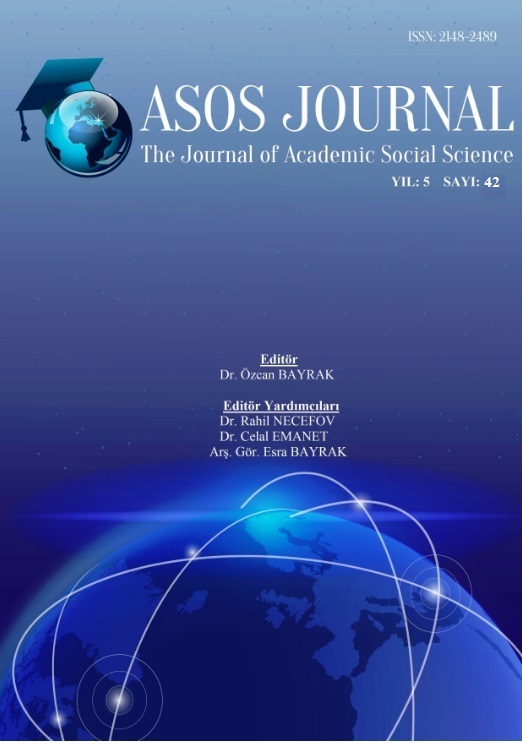Author :
Abstract
Bu çalışmanın amacı öğretmen adaylarının yansıtıcı düşünme eğilim düzeylerinin incelenmesidir. Araştırma yöntemi olarak bu araştırmada, nicel araştırma yöntemlerinden biri olan betimleyici tarama modelinden yararlanılmıştır. Araştırmanın çalışma grubunu, İstanbul ilindeki bir devlet üniversitesinde yaz okulunda ders alan 3. ve 4. sınıf öğrencisi öğretmen adayları oluşturmaktadır. Çalışmaya katılan öğretmen adaylarının yansıtıcı düşünme eğilimlerini belirlemek için veri toplama aracı olarak “Öğretmen ve Öğretmen Adayları İçin Yansıtıcı Düşünme Eğilimi Ölçeği” kullanılmıştır. Araştırmadan elde edilen bulgulara göre öğretmen adaylarının yansıtıcı düşünme eğilimlerinin oldukça yüksek bir düzeyde olduğu saptanmıştır. Bununla birlikte öğretmen adaylarının yansıtıcı düşünme eğilim düzeylerinin yaş, cinsiyet, öğretmenlik branşı, kaçıncı sınıf öğrencisi oldukları, eğitim gördükleri üniversitenin türü, bölümlerini tercih sıraları ve daha önce herhangi bir üniversite bitirip bitirmediklerine göre anlamlı farklılıklar göstermediği belirlenmiştir.
Keywords
Abstract
The purpose of this study is to examine the prospective teachers’ reflective thinking tendencies. As a research method in the study descriptive survey method, which is one of the quantitative research methods, was utilized. The participants of the study is comprised of the third and fourth grade prospective teacher students who had been attending summer school classes in a state university in Istanbul. In order to determine the level of sample group prospective teachers’ reflective thinking tendencies “The Reflective Thinking Tendency Questionnaire for Teachers and Prospective Teachers” was used as a tool of data collection. According to the findings of the study, the level of prospective teachers’ reflective thinking tendencies is considerably high. It is also determined that the level of prospective teachers’ reflective thinking tendencies reveals no meaningful differences in connection with their ages, genders, teaching specialties, grades, university types, order of preferences for their faculty departments and whether they had graduated from a university before.





